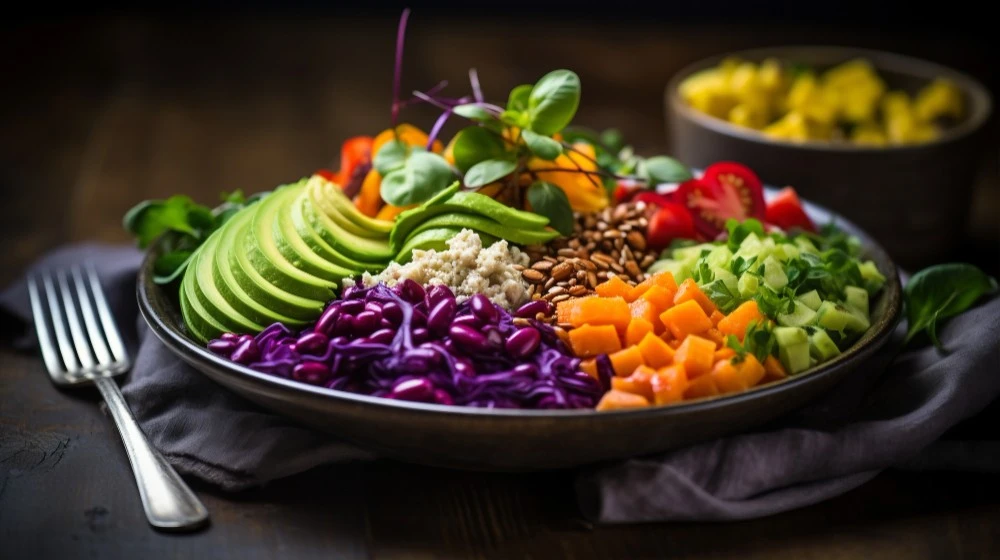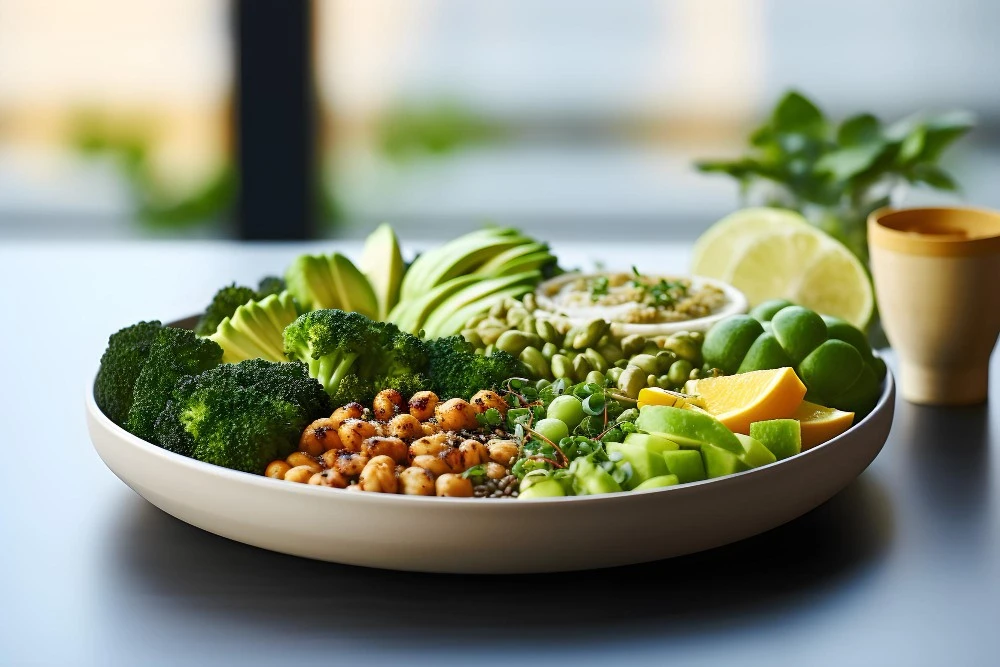In recent years, the spotlight on plant-based diets has intensified, not just for their environmental benefits, but for their profound impact on human health. Specifically, numerous studies have suggested that adopting a plant-based diet can significantly reduce the risk of developing cancer. This connection between diet and cancer prevention stems from the high levels of vitamins, minerals, and antioxidants found in fruits, vegetables, and whole grains, which are staples of plant-based eating. In this comprehensive guide, we will explore the scientific evidence that supports the role of plant-based diets in cancer risk reduction, identify key foods that fight cancer, and provide practical advice for those looking to make a dietary change that could potentially save their lives.

How Plant-Based Diets Can Lower Cancer Risk
Research has shown that diets rich in fruits, vegetables, and whole grains are associated with a reduced risk of certain types of cancer. This connection is believed to be due to the high levels of vitamins, minerals, and antioxidants found in plant-based foods, which can help protect cells from damage that might lead to cancer. Additionally, plant-based diets tend to be lower in saturated fats and higher in fiber, which further supports overall health and helps maintain a healthy weight, reducing cancer risk.
Top Plant-Based Foods Known to Help Prevent Cancer
Some plant-based foods are particularly notable for their cancer-preventing properties. Cruciferous vegetables like broccoli, Brussels sprouts, and cauliflower contain glucosinolates, which have been shown to have protective effects. Berries, rich in antioxidants, help reduce oxidative stress and inflammation, lowering the risk of cancer development. Incorporating these foods into daily meals can be a delicious and effective way to boost cancer prevention.
The Science Behind Plant-Based Eating and Cancer Prevention
The protective effect of plant-based diets against cancer is supported by a growing body of scientific evidence. These diets are typically high in fiber, which helps to regulate the digestive system and may reduce the risk of colorectal cancer. Phytochemicals, compounds naturally found in plants, also play a crucial role by inhibiting the growth of cancer cells and reducing inflammation in the body. Understanding these mechanisms can empower individuals to make informed dietary choices that promote long-term health.
Plant-Based Diets: Reducing Cancer Risk
Adopting a plant-based diet could be a key strategy in the public health approach to reducing cancer incidence. Population studies suggest that societies consuming diets predominantly made up of plant foods have lower cancer rates compared to those that consume more animal-based foods. By shifting dietary patterns on a larger scale, we could potentially see a significant decrease in cancer prevalence, showcasing the power of diet as a preventive tool.

Nutritional Benefits of a Plant-Based Diet in Cancer Prevention
Plant-based diets offer a plethora of nutrients that are essential for maintaining healthy cellular function and integrity. For instance, vitamins A, C, and E, and selenium found in vegetables and fruits serve as powerful antioxidants that protect cells from damage. Moreover, the high fiber content in such diets not only aids digestion but also helps in the elimination of carcinogens from the gastrointestinal tract, thereby reducing cancer risk.
How to Transition to a Plant-Based Diet for Cancer Prevention
Transitioning to a plant-based diet doesn’t have to be abrupt or challenging. It can start with small, manageable changes, such as incorporating a vegetarian meal once a week and gradually increasing the frequency. Utilizing plant-based substitutes in favorite recipes can also ease the transition. For those new to plant-based cooking, plenty of resources and recipes are available online and in cookbooks that cater to healthy eating habits.
Real-Life Impact of Plant-Based Diets on Cancer Prevention
Personal stories and testimonials can serve as powerful motivators for those considering a switch to a plant-based diet. Many individuals who have adopted plant-based eating report not only improvements in their overall health but also a profound impact in managing and preventing chronic diseases, including cancer. These anecdotes, backed by scientific research, highlight the potential personal health benefits of dietary changes and encourage others to consider how their eating habits can influence their health outcomes.
Conclusion
Embracing a plant-based diet emerges not only as a viable option but as a compelling one for anyone looking to reduce their cancer risk and improve overall health. The wealth of scientific research we’ve explored underscores the powerful effects of plant-based foods in combating cancer. By integrating more fruits, vegetables, and whole grains into your diet, you take proactive steps towards preventing cancer and promoting a healthier, more sustainable lifestyle. Whether you are motivated by personal health goals or the experiences of others who have benefited from such diets, starting a plant-based diet could be a transformative decision for your health and wellbeing.
Frequently Asked Questions
Absolutely. Plant-based diets can meet protein requirements when properly planned. Foods like lentils, chickpeas, quinoa, tofu, and tempeh are excellent sources of protein. Including a variety of these foods throughout the day ensures you receive all essential amino acids necessary for good health.
Many people report feeling improvements in energy levels and overall wellbeing within just a few weeks of adopting a plant-based diet. However, the timeline for specific health benefits, such as reduced cancer risk, can vary significantly based on individual health conditions, lifestyle factors, and the extent of dietary changes.
Following a plant-based diet can be economical. Staples like beans, rice, pasta, and seasonal vegetables are generally affordable. Costs can increase with the purchase of specialty items like vegan cheeses and meats, but these are not necessary for a healthy plant-based diet. Planning meals and buying whole foods in bulk can help keep expenses low.